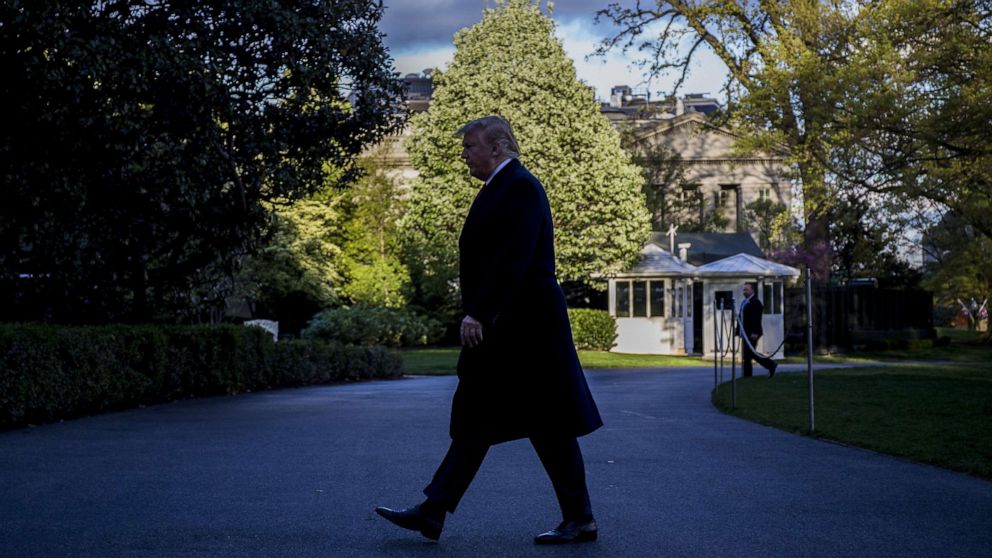Here's what we know about obstruction of justice
With the public release of special counsel Robert Mueller’s highly anticipated and redacted report on Thursday, pundits and politicians were parsing its findings on the question of "obstruction of justice."
Obstruction of justice accounts for a federal crime in which someone "corruptly" attempts to “influence, obstruct or impede” the “due and proper administration of the law” in a pending proceeding, according to federal code. The president’s critics have pointed to his dismissal of former FBI Director James Comey – and subsequent explanations for that decision – as evidence that Trump obstructed justice.
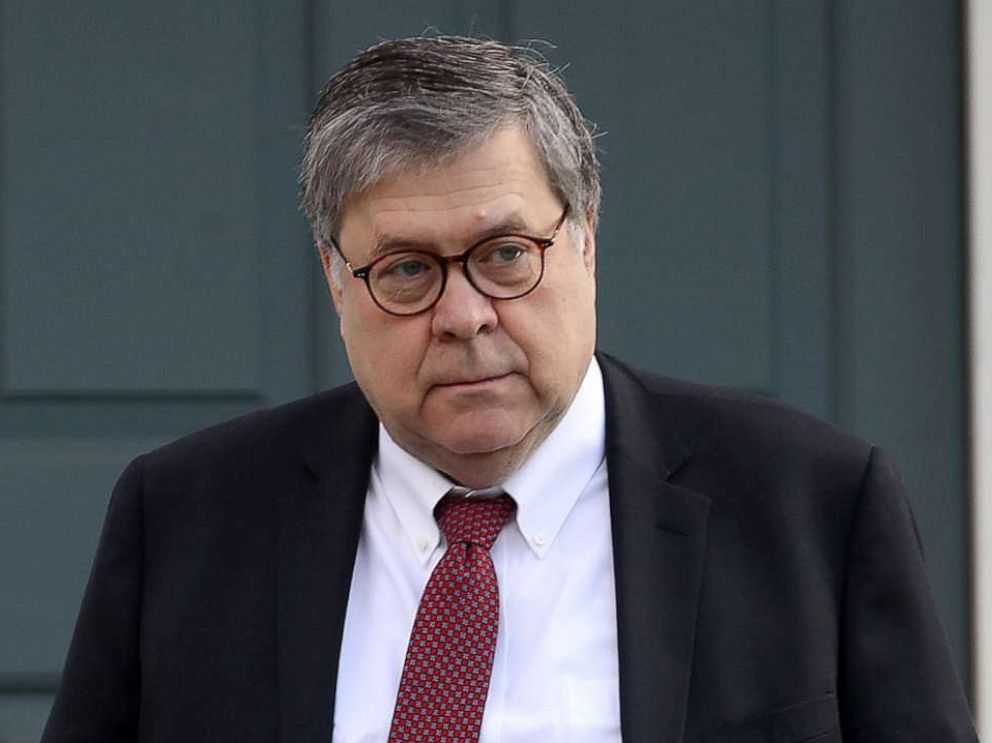
In his letter to Congress describing the “principal conclusions” of Mueller’s report, Attorney General William Barr indicated that while Mueller did find at least some evidence suggesting Trump tried to obstruct the investigation, the evidence did not amount to a criminal offense.
Here's what the report suggests about obstruction of justice.
Here's the issue:
The 11 possible instances of Obstruction of Justice investigated
Here's where you can find it in the report:
Volume 2, pages 3-6
Here's the summary:
These are the 11 potential actions of obstruction of justice investigated by the special counsel’s office as described in the report. During his news conference Thursday morning before the report' release, Barr mentioned 10 such instances. Each of these examples is extrapolated upon in both the executive summary and in the report.
Here's what the report says:
1. The Campaign's response to reports about Russian support for Trump
2. Conduct involving FBI Director Comey and Michael Flynn
3. The President's reaction to the continuing Russia investigation
4. The President's termination of Comey
5. The appointment of a Special Counsel and efforts to remove him
6. Efforts to curtail the Special Counsel's investigation
7. Efforts to prevent public disclosure of evidence
8. Further efforts to have the Attorney General take control of the investigation
9. Efforts to have McGahn deny that the President had ordered him to have the Special Counsel removed
10. Conduct towards Flynn, Manafort, [REDACTED – HARM TO ONGOING MATTER]
11. Conduct involving Michael Cohen
Here's the issue:
"Overarching Factual Issues"
Here's where you can find it in the report:
Vol. 2, pages 156-158
Here's the summary:
The report outlines general conclusions concerning the President’s course of conduct.
Here's what the report says:
PART 1: The Special Counsel offers three features that render this case atypical from traditional obstruction of justice prosecutions
PART 1: The Special Counsel offers three features that render this case atypical from traditional obstruction of justice prosecutions
1) As head of the Executive Branch provides him with unique and powerful means of influence
2) Obstruction cases involve attempted or actual cover up of an underlying crime, proof of such a crime is not an element as obstruction of justice can be motivated by a desire to protect non-criminal personal interests, like avoiding personal embarrassment.
PAGE 157 - PARAGRAPH 2: "The evidence does point to a range of other possible personal motives animating the President's conduct. These include concerns that continued investigation would call into question the legitimacy of his election and potential uncertainty about whether certain events-such as advance notice of WikiLeaks's release of hacked information or the June 9, 2016 meeting between senior campaign officials and Russians could be seen as criminal activity by the President, his campaign, or his family."
3) Many of the President’s acts directed at witnesses occurred in public view.
PART 2: This second section deals with the President’s discrete acts. “It is important to view the President’s pattern of conduct as a whole.”
1) Investigators found multiple acts by the President that were capable of exerting undue influence over law enforcement investigations, however they conclude the President’s efforts to influence the investigation were “mostly unsuccessful but that is largely because the persons who surrounded the President declined to carry out orders or accede to his requests.”
2) The President’s actions can be divided into TWO distinct phases reflecting a possible shift in the President’s motives. The first phase involved the firing of Comey, and the Special Counsel’s conclusion that "the President deemed it critically important to make public that he was not under investigation." After Comey’s firing, the second phase began when the President became aware that investigators were conducting an obstruction of justice inquiry into his own conduct. The President then began launching public attacks on the investigation and individuals involved in it.
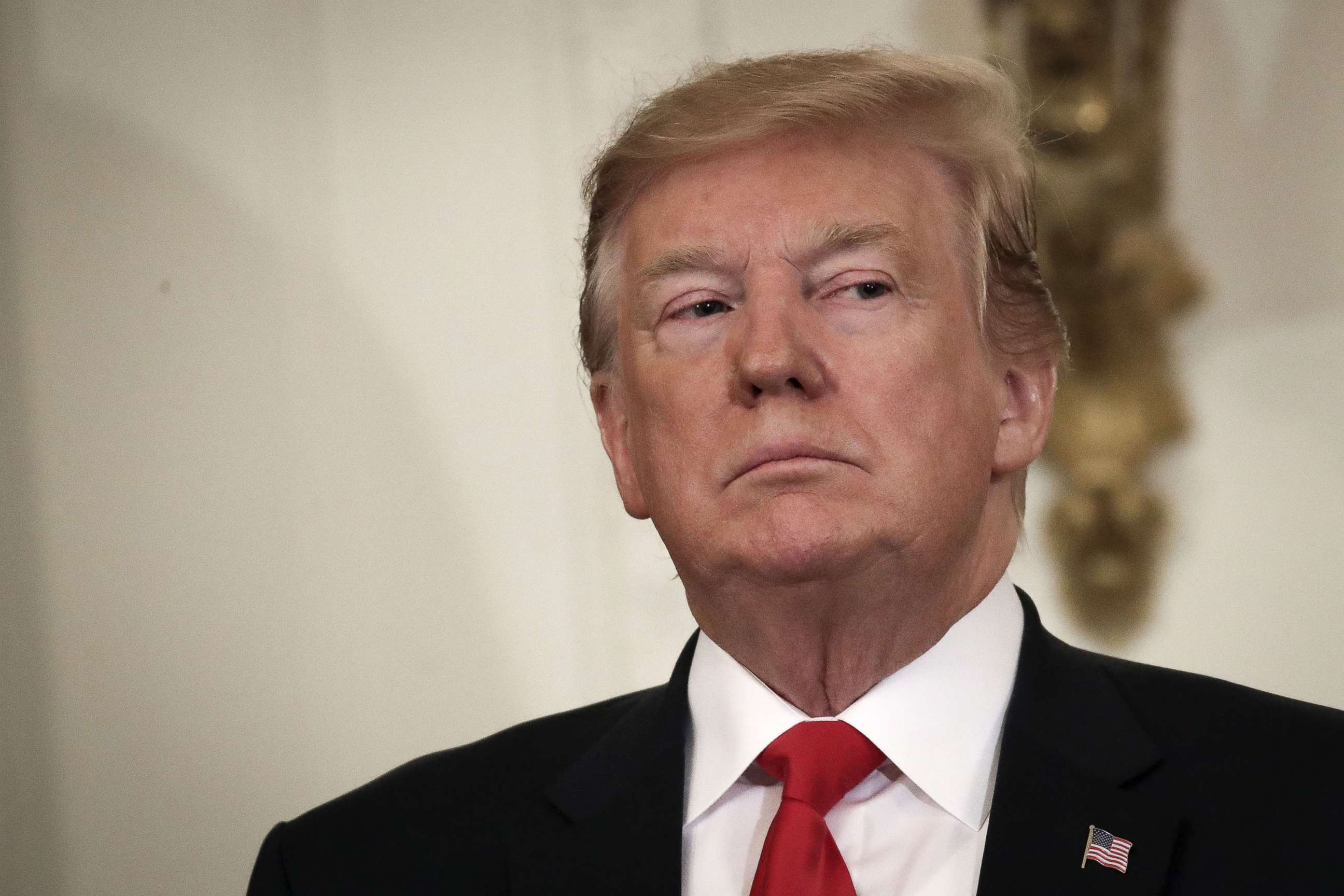
Here's the issue:
“The President’s Efforts to Prevent Disclosure of Emails about the June 9, 2016 Meeting between Russians and Senior Campaign Officials”
Here's where you can find it in the report:
Vol. 2, pages 98 - 107
Here's the summary:
This section is divided into four subsections: (1) The President Learns about the Existence of Emails Concerning June 9, 2016 Trump Tower Meeting, (2) President Directs Communications Staff Not to Publicly Disclose Information About the June 9 Meeting, (3) President Directs Trump Jr.’s Response to Press Inquiries About the June 9 Meeting, and (4) The Media Reports on the June 9, 2016 Meeting.
Mueller’s team cites at least three occasions between June 29, 2017 and July 9, 2017- when the President directed Hope Hicks and others not to publicly disclose information about the June 9, 2016 meeting between senior campaign officials and a Russian attorney. The OSC concludes that these efforts by the President were directed at the press, adding that these acts would amount to obstructive acts only if the President sought to withhold information or mislead congressional investigations or the SC. On May 17, 2017, the President’s campaign received a document request from SSCI that clearly covered the June 9 meeting.
In the analysis section, the Special Counsel specifically addresses the phrase attributed to Hope Hicks, “it will never get out”—in reference to the emails setting up the June 9 meeting. Hicks said she had no memory of making that comment and always believed the emails would eventually be leaked. The Special Counsel writes that the Hicks statement can be explained as reflecting a belief that the emails would not be made public if the President’s press strategy were followed, even if the emails were provided to Congress and the Special Counsel.
Here's what the report says:
The report adds that “the only evidence we have of the President discussing the production of documents to Congress or the Special Counsel is the conversation on June 29, 2017, when Hicks recalled the President acknowledging that Kushner’s attorney should provide emails related to the June 9 meeting to whomever he needed to give them to. We do not have evidence of what the President discussed with his own lawyers at that time.” The Special Counsel also addresses “intent” writing about the President’s desire to “minimize public disclosures about those connections.” [campaign’s connections to Russia]. The report states the evidence does not establish the President intended to prevent the Special Counsel’s Office or Congress from obtaining the emails setting up the June 9 meeting or other information about that meeting.
Here's the issue:
"The President Orders McGahn to Deny that the President Tried to Fire the Special Counsel"
Here's where you can find it in the report:
Vol. 2, page 113
Here's the summary:
SUMMARY: After news broke that Trump ordered McGahn to fire the Special Counsel, Trump pressured McGahn deny that he had been directed to do so, even suggesting to aides that he would fire him unless he complied. Mueller concludes that there is evidence to suggest Trump acted this way to impede his investigation.
Here's what the report says:
The President then directed [staff secretary Rob] Porter to tell McGahn to create a record to make clear that the President never directed McGahn to fire the Special Counsel. Porter thought the matter should be handled by the White House communications office, but the President said he wanted McGahn to write a letter to the file "for our records" and wanted something beyond a press statement to demonstrate that the reporting was inaccurate. The President referred to McGahn as a "lying bastard" and said that he wanted a record from him. Porter recalled the President saying something to the effect of, "If he doesn't write a letter, then maybe I'll have to get rid of him."
“Porter told McGahn that he had to write a letter to dispute that he was ever ordered to terminate the Special Counsel. McGahn shrugged off the request, explaining that the media reports were true. McGahn told Porter that the President had been insistent on firing the Special Counsel and that McGahn had planned to resign rather than carry out the order, although he had not personally told the President he intended to quit.804 Porter told McGahn that the President suggested that McGahn would be fired if he did not write the letter. McGahn dismissed the threat, saying that the optics would be terrible if the President followed through with firing him on that basis. McGahn said he would not write the letter the President had requested.”
But the President's efforts to have McGahn write a letter "for our records" approximately ten days after the stories had come out- well past the typical time to issue a correction for a news story-indicates the President was not focused solely on a press strategy, but instead likely contemplated the ongoing investigation and any proceedings arising from it…Substantial evidence indicates that in repeatedly urging McGahn to dispute that he was ordered to have the Special Counsel terminated, the President acted for the purpose of influencing McGahn's account in order to deflect or prevent further scrutiny of the President's conduct towards the investigation.
Here's the issue:
The President's conduct involving Michael Cohen
Here's where you can find it in the report:
Page 134
Here's the summary:
The Mueller report states that while working on his statements to Congress, President Donald Trump's then-personal attorney Michael Cohen had "extensive" discussions with the president's personal counsel. The report also states Trump passed messages of support to Cohen and Cohen discussed pardons with the president's legal team. Cohen believed if he cooperated he would get a pardon, according to the report.
Here's what the report says:
"While working on the congressional statement, Cohen had extensive discussions with the President's personal counsel, who, according to Cohen, said that Cohen should not contradict the President and should keep the statement short and 'tight.'
"Cohen also discussed pardons with the President's personal counsel and believed that if he stayed on message, he would get a pardon or the President would do 'something else' to make the investigation end."
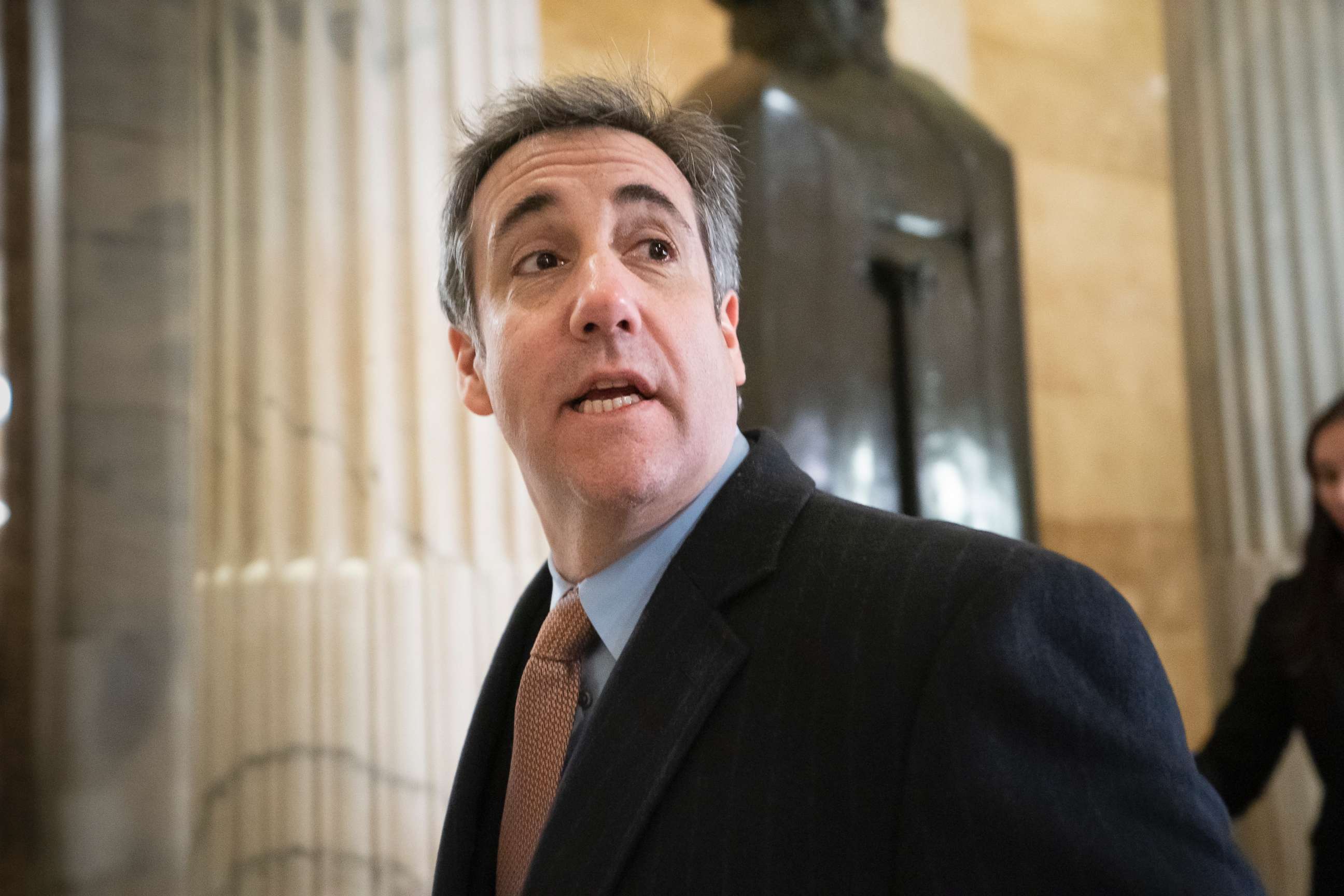
Here's the issue:
The President's conduct involving Michael Cohen
b>Here's where you can find it in the report:
Pages 134-144
Here's the summary:
• Cohen had numerous brief conversations with Trump about the Trump Tower Moscow project from Sept. 2015 onward, as well as conversations with Ivanka and Donald Trump Jr. In Dec. 2015, Felix Sater asked Cohen for a copy of his and Trump's passports to facilitate travel to Russia. By Jan 2016, growing frustrated with Sater, Cohen reached out directly to Dmitry Peskov and later had a conversation with Peskov's assistant that he recounted to Trump. • The day after Cohen's conversation with Peskov's assistant, Sater texted Cohen saying that the Russian government liked the project and invited Cohen to come visit Moscow. Cohen continued to brief Trump and Donald Trump Jr. on the project through the spring. Cohen and Sater worked to determine a time for a potential visit from then candidate Trump to Russia. The visit never happened. Cohen also decided not to visit. Cohen recounts telling trump that the project was "going nowhere" sometime during the summer of 2016.• In January 2017, Cohen received press inquiries about Trump Tower Moscow, and told President-Elect Trump about the inquiries. He was concerned being honest about the project would not be consistent with the president's previous comments about his relationship with Russia. o To stay on message Cohen told a NYT reporter that the Trump Tower Moscow deal ended in January 2016. Cohen said he discussed this talking point with Trump.• Cohen entered into a joint defense agreement with the president and others after Congress requested he testify. Cohen assumed he would be asked about allegations in the Steele Dossier. Cohen spoke with the president's personal counsel "frequently" leading up to his congressional testimony. • Cohen was told by the president's personal counsel that the joint defense agreement was working well. His bills were being paid by the Trump Org. Cohen said the president's personal counsel told him he was protected by the JDA, and he wouldn't be if he "went rogue" • Cohen prepared a draft letter to congress which included several false statements. That letter was circulated around and edited by members of the JDA. The president's personal counsel also told Cohen not to make reference to an attempt to set up a meeting between Trump and Putin during the 2015 United Nations general Assembly. • Cohen submitted his statement. He recalled speaking to the president "more generally" about his plans to stay on message during his testimony
Here's what the report says:
• Page 137: "Cohen remembered that Trump said that he would be willing to travel to Russia if Cohen could "lock and load" on the deal.• Page 137: "During the summer of 2016, Cohen recalled that candidate Trump publicly claimed that he had nothing to do with Russia and then shortly afterwards privately checked with Cohen about the status of the Trump Tower Moscow project, which Cohen found "interesting."• Page 139: "Cohen said that he discussed the talking points with Trump but that he did not explicitly tell Trump he thought they were untrue because Trump already knew they were untrue." • Page 140: "At the time, Cohen's legal bills were being paid by the Trump Organization, and Cohen was told not to worry because the investigations would be over by summer of fall of 2017. Cohen said that the President's personal counsel also conveyed that, as part of the JDA, Cohen was protected, which he would not be if he "went rogue". Cohen recalled that the President's personal counsel reminded him that "the President loves you" and told him that if he stayed on message, the President had his back. • Page 142: "He was not concerned that the story would be contradicted by individuals who knew it was false because he was sticking to the party line adhered to by the whole group." • Page 143: "Cohen recalled that the President's personal counsel said "his client" appreciated Cohen, that Cohen should stay on message and not contradict the President, that there was no need to muddy the water, and that it was time to move on."
Here's the issue:
The President's conduct involving Michael Cohen
b>Here's where you can find it in the report:
Pages 144-152
Here's the summary:
• The special counsel did not look into payments to women during the campaign period. On Feb. 19, the day after the NY Times wrote a story attributing the payment to Cohen, Cohen got a text from the President's personal counsel that stated "client says thanks for what you do." • The president called Cohen a few days after the FBI raid on his home, hotel and office and encouraging him to "hang in there" and "stay strong" • On or about April 17, Cohen starts speaking with Robert Costello, who told Cohen he had a "back channel of communication" to Giuliani and that Giuliani said the "channel" was "crucial" and "must be maintained." Costello had conversations with Cohen that made him feel that he would be taken care of as long as he stuck to party lines. • After the raids on his home and office, Cohen spoke with the president's personal counsel about pardons. Cohen wanted to know "what was in it for him" and was told if he stayed on message everything would be fine. • Beginning in July, Cohen signaled his willingness to flip on the president, first in an ABC News exclusive interview. He pleaded guilty in the SDNY. The president tweeted contrasting Cohen with Manafort• The special counsel's office asked Trump about the timing of the Trump Tower Moscow project in written questions. The president "did not provide any information" about the timing of his discussions with Cohen related to the project. • After the president made public statements that he "decided not to do the project" (see full public statement by the president below) the special counsel went back to the president to seek information about whether he participated in any discussions about the project being abandoned and about "what period of the campaign" he was involved in during discussions of the project. The president's personal counsel declined to answer and states that "the President has fully answered the question at issue."
Here's what the report says:
• Page 144-145: In January 2018, the media reported that Cohen had arranged a $130,00 payment during the campaign to prevent a woman from publicly discussing an alleged sexual encounter she had with the President before he ran for office. This office did not investigate Cohen's campaign-period payments to women." • Page 146: "Cohen recalled that REDACTED, a friend of the President's, reached out to say that he was with "the Boss" in Mar-a-Lago and the Prsident had said "he loves you" and not to worry. Cohen recalled that REDACTED for the Trump Organization, told him "the boss loves you." And Cohen said that REDACTED, a friend of the President's, told him, "everyone knows the boss has your back." • Page 147 "In an email that day to Cohen, Costello wrote that he had spoken with Giuliani. Costello told Cohen the conversation was "Very Very Positive [.] You are 'loved'... they are in our corner... Sleep well tonight [], you have friends in high places." • Page 147: "Cohen understood based on his conversations and previous conversations about pardons with the President's personal counsel that as long as he stayed on message, he would be taken care of by the President, either through a pardon or through the investigation being shutdown." • Page 150: "I had few conversations with Mr. Cohen on this subject. As I recall, they were brief, and they were not memorable. i was not enthused about the proposal, and I do not recall any discussion of travel to Russia in connection with it. I do not remember discussing it with anyone else at the Trump organization, although it is possible."
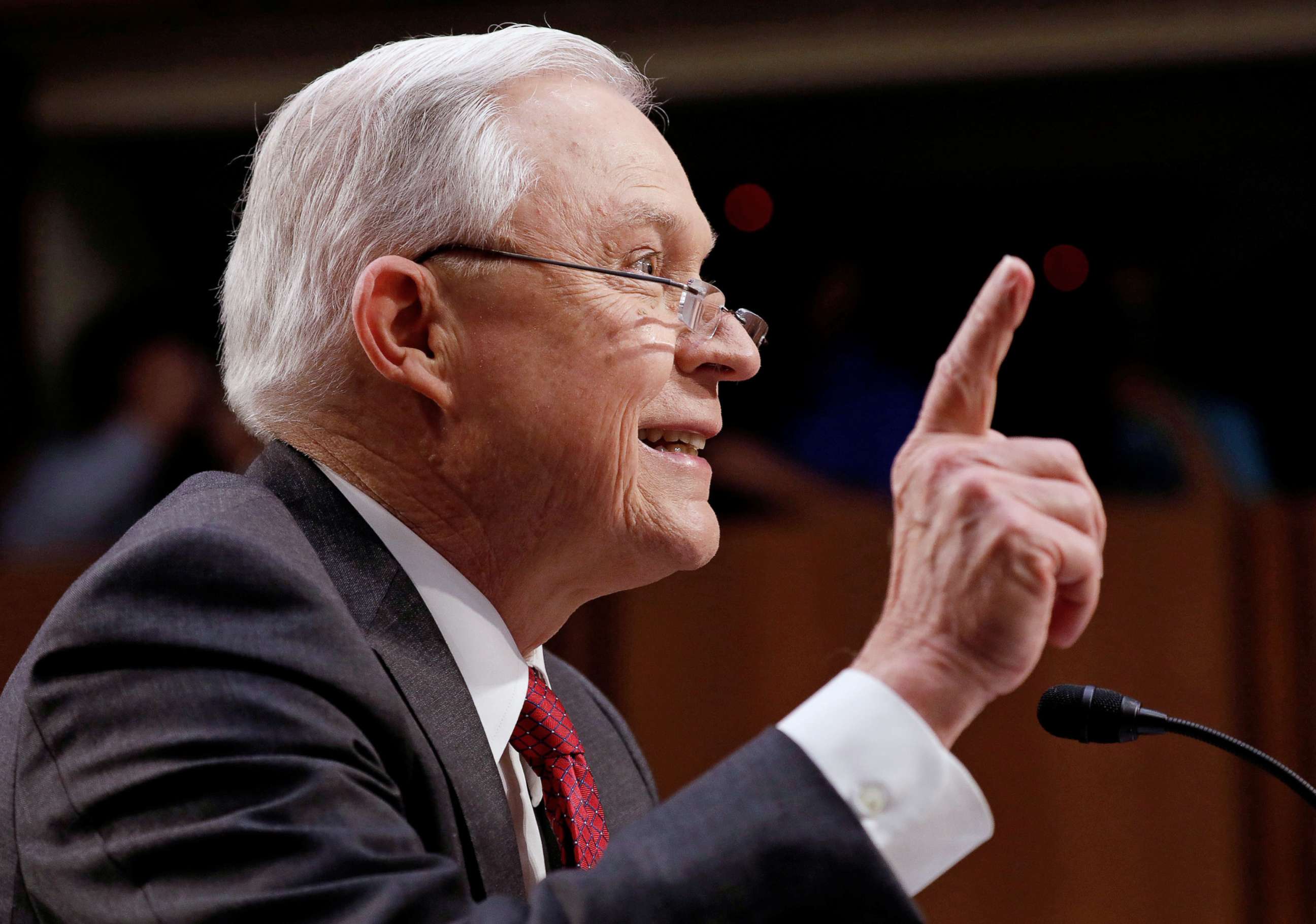
Here's the issue:
President again seeks to have Sessions reverse his recusal
b>Here's where you can find it in the report:
Vol.2, page 107
Here's the summary:
President Trump wants to explore options to who at the Department of Justice can lead the investigation. In an effort to remove Deputy AG Rod Rosenstein / the President asked then staff secretary Rob Porter about the number three in line - Deputy AG Rachel Brand. President Trump asked Porter if she was "good, tough, and 'on the team."
Here's what the report says:
"After returning Sessions's resignation letter at the end of May 2017, but before the President[s July 19, 2017 New York Times interview in which he publicly criticized Sessions for recusing from the Russia investigation, the President took additional steps to have Sessions reverse his recusal. In particular, Session recalled, the President called him at home and asked if Session could "unrecuse" himself. According to Sessions, the President asked him to reverse his recusal so that Sessions could direct the Department of Justice to inverstigate and prosecute Hillary Clinton, and the "gist" of the conversation was that the President wanted Sessions to unrecuse from "all of it," including the Special Counsel's Russia investigation. Sessions listened but did not respond, and he did not reverse his recusal or order an investigation of Clinton."
Here's the issue:
The President’s Further Efforts to Have the AG Jeff Sessions Take Over the Investigation
Here's where you can find it in the report:
Vol. 2, pages 111-112
Here's the summary:
Mueller appears to conclude that President Trump’s actions with regard to Jeff Sessions could constitute as obstruction
Here's what the report says:
“On multiple occasions in 2017, the President spoke with Sessions about reversing his recusal so that he could take over the Russia investigation and begin an investigation of Hillary Clinton…There is evidence that at least one purpose of the President’s conduct toward Sessions was to have Sessions assume control over the Russia investigation and supervise it in a way that could restrict its scope…A reasonable inference from those statements and the President’s action is that an unrecused Attorney General would play a protective role and could shield the President from the ongoing Russia investigation.”
Here's the issue:
The campaign's response to reports about Russian support for Trump
Here's where you can find it in the report:
Vol. 2. pages 15- 23
Here's the summary:
• Trump publicly expressed skepticism that Russia had hacked the Democratic National Committee emails at the same time as he and other campaign advisers privately sought information about any further planned WikiLeaks releases (PAGE 15) • Inside the Trump campaign, aides "reacted with enthusiasm to reports of the hacks". Some witnesses said Trump discussed the possibility of upcoming releases. The following section is heavily redacted, but what's available tells us that Manafort spoke to Trump shortly after the WikiLeaks July 22, 2016 release and that Trump told Rick Gates that more releases of damaging information were coming. (PAGE 17-18)• After the July 22, 2016 release the campaign publicly rejected assertions that Russia was trying to aid candidate Trump. Trump publicly denied any ties to Russia even though he had been pursuing the Trump Tower Moscow project from Sept 2015 to June 2016. (PAGE 18)• After Trump denied business dealings in Russia, Cohen approached him about his assertions being untrue. "Why mention it if it is not a deal?" Trump responded. After that his advisers established the position that Trump had no business connections to Russia. (PAGE 19) • The Trump campaign actively sought to distance itself from Russia: J.D. Gordon declined an invitation to Sergey Kislyaks residence, Manafort was asked to resign after coverage of his lobbying work in Ukraine, and Page was terminated after stories were published connecting him to Russia. (PAGE 20)• After the election, Trump and his staff continued to deny any connection to Russia. Hope Hicks and Reince Priebus make public statements denying Russian ties. The Steele Dossier is released shortly after and President-elect Trump calls it an "absolute disgrace" (PAGE 21-23)• Top aides said that the president viewed stories about the Russia connection as a "threat to the legitimacy of his electoral victory" Hope Hicks said that president viewed the intelligence community assessment as his "Achilles hill" because even if Russia didn't impact the election, it impacted public opinion. (PAGE 23)
Here's what the report says:
• Page 17 "Within the Trump Campaign, aides reacted with enthusiasm to reports of the hacks. REDACTED discussed with Campaign officials that WikiLeaks would release the hacked material. Some witnesses said that Trump himself discussed the possibility of upcoming releases. " • Page 19-20: "Trump told Cohen that trump Tower Moscow as not a deal yet and said, "Why mention it if it is not a deal?" According to Cohen, at around this time, in response to trump's disavowal of connections to Russia, campaign advisors had developed a "party line" that Trump had no business with Russia and no connections to Russia." • Page 23: "Hicks, for example, said the President_Elect viewed the intelligence community assessment as his "Achilles heel" because, even if Russia had no impact on the election, people would think Russia helped him win, taking away from what he had accomplished. Sean Spicer, the first White House communications director, recalled that the President thought the Russia story was developed to undermine the legitimacy of his election. Gates said the President viewed the Russia investigation as an attack on the legitimacy of his win. And Priebus recalled that when the intelligence asssment came out, the President-Elect was concerned people would question the legitimacy of his win.:"
Here's the issue:
Obstruction
Here's where you can find it in the report:
Vol.2, pages 90-93
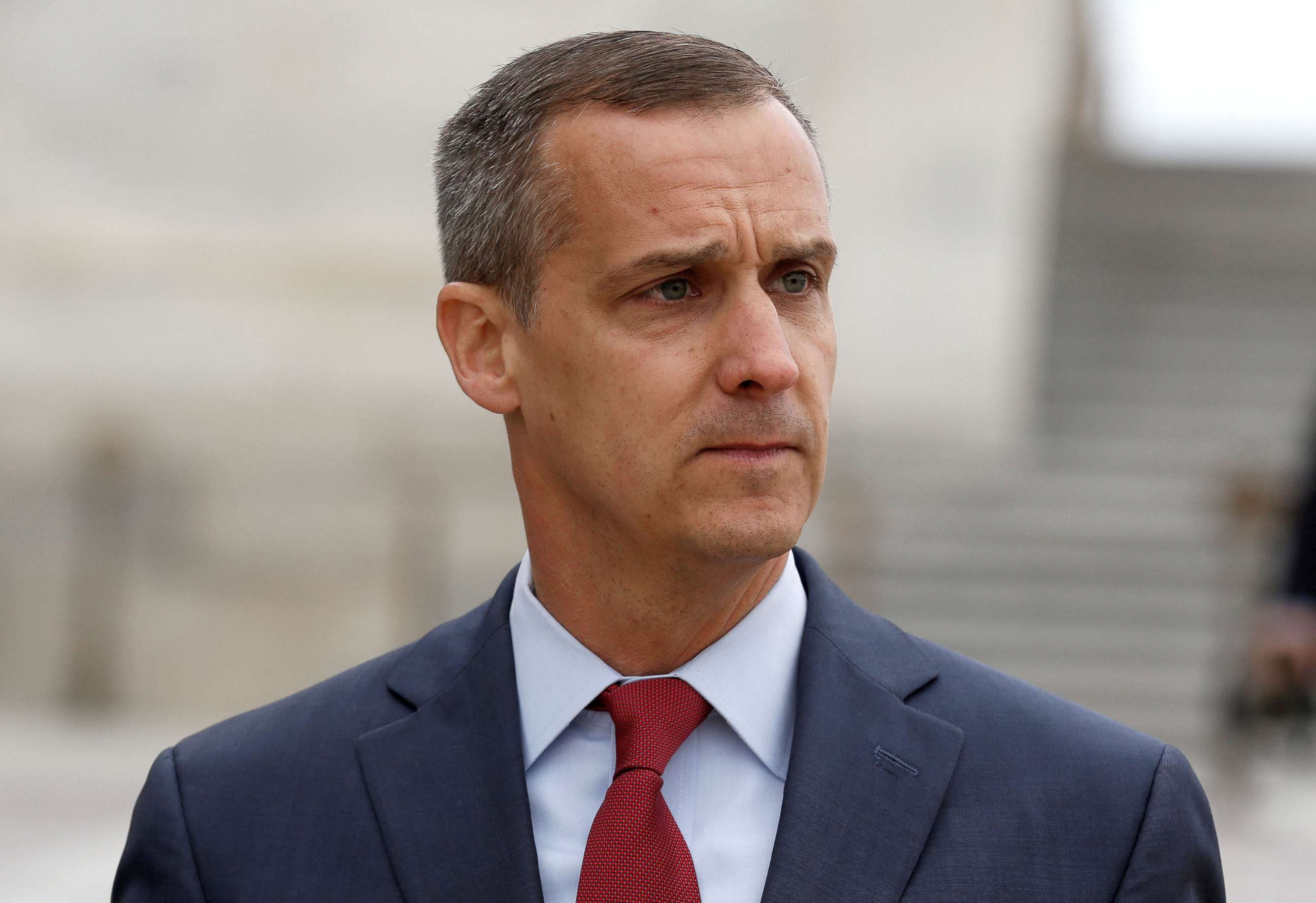
Here's the summary:
2nd time Trump tried to affect Special Counsel investigation -- Trump dictated message to former campaign manager Corey Lewanandowski to give to AG Sessions to limit the scope of the SC investigation to election interference only.
Here's what the report says:
Two days after Trump directed Don McGhan to remove Special Counsel, Trump on June 19, 2017 “met one-one-one w/ Corey Lewandowski in the Oval Office” to dictate a message to Sessions that would have limited the scope of the investigation to ELECTION INTERFERENCE ONLY
Trump “met one-one-one w/ Corey Lewandowski in the Oval Office and dictated a message to be delivered to attorney general Sessions that would have had the effect of limiting the Russia investigation to election interference only.”
President dictated this note for Lewandowski to deliver to Sessions: “The president directed that Sessions should give a speech publicly announcing: ‘I know that I recused myself from certain things having to do with specific areas. But our POTUS… Is being treated very unfairly. He shouldn’t have a special prosecutor/Counsel b/c he hasn’t done anything wrong I was on the campaign w/ him for nine months, there were no Russians involved with him. I know it for a fact b/c I was there. He didn’t do anything wrong except he ran the greatest campaign in an American history.’”
The dictated message went on to state that Sessions would meet with the Special Counsel to limit his jurisdiction to future election interference:
DICTATION OF PRESIDENT TRUMP PER THE REPORT VIA LEWANDOWSKI : "Now a group of people want to subvert the Constitution of the United States. I am going to meet with the Special Prosecutor to explain this is very unfair and let the Special Prosecutor move forward with investigating election meddling for future elections so that nothing can happen in future elections.”
“Lewandowski wanted to pass the message to Sessions in person rather than over the phone. He did not want to meet at the department of justice because he did not want to public log of his visit and did not want Sessions to have an advantage over him by meeting about Lewandowski described as Sessions turf.”
BUT -- Lewandowski left DC w/o being able to meet Sessions. He later decided Rick Dearborn should deliver message. The message “raised an eyebrow” w/ Dearborn & he didn’t deliver the message, though he told Lewandowski he did.
Lewandowski met again in Oval alone w/ POTUS. POTUS asked if message had been delivered to Trump. Lewandowki said it would be delivered “soon.” THEN: “Lewandowski recalled the president told him that if Sessions did not meet with him, he should tell Sessions he was fired.”
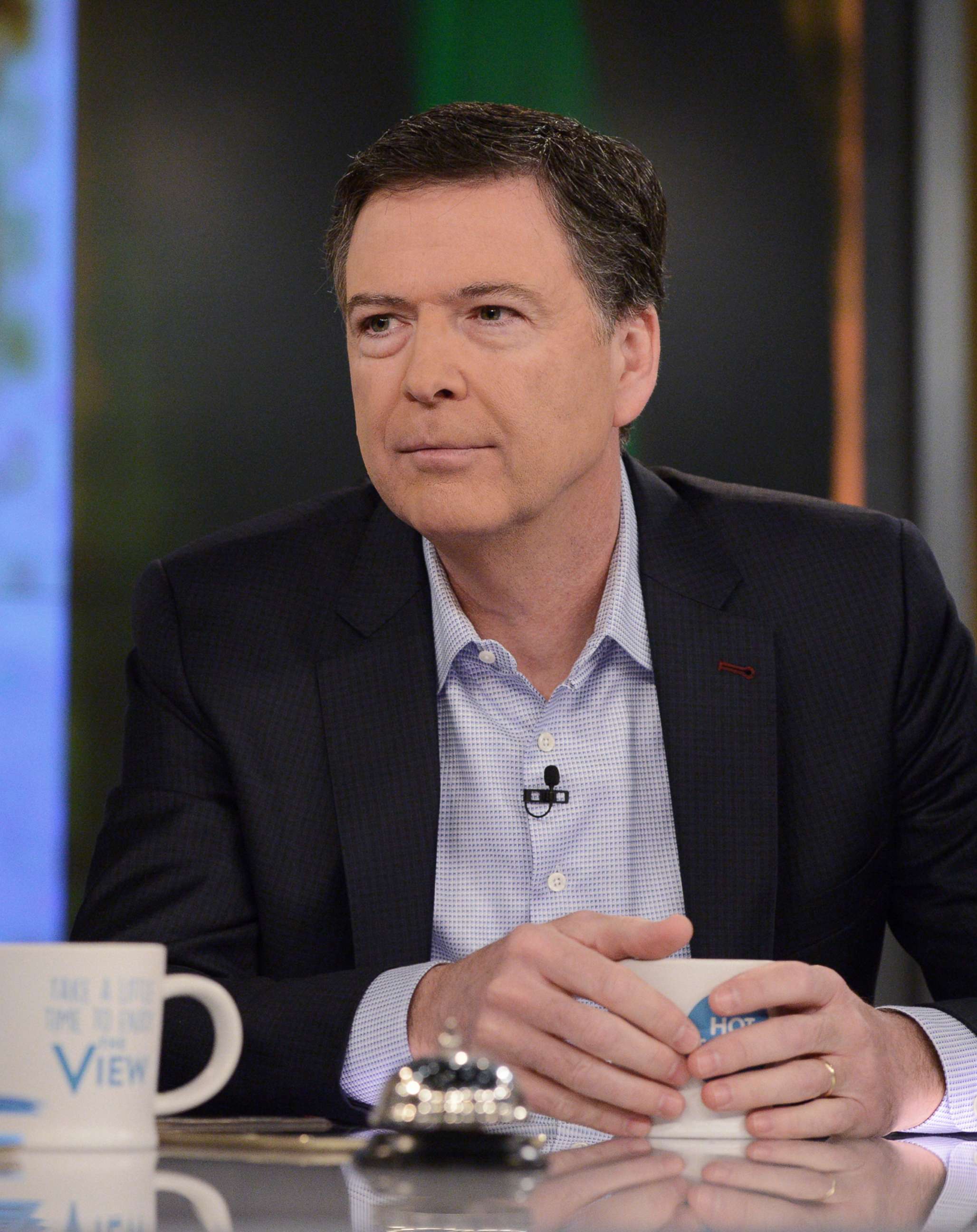
Here's the issue:
“Events Leading Up To and Surrounding the Terminal of FBI Director Comey”
Here's where you can find it in the report:
Vol. 2, pages 62-77
Here's the summary:
The Special Counsel breaks this into two sections
Here's what the report says:
PART 1: “Comey Testifies before the Senate Judiciary Committee and Declines to Answer Questions About Whether the President is Under Investigation”Former White House Advisor Steve Bannon recalled that the President brought Comey up with him at least 8 times between May 3 -4, 2017, around the time Comey testified on Capitol Hill. According to Bannon, the President said the same thing each time: “He told me three times I’m not under investigation. He’s a showboater. He’s a grandstander. I don’t know any Russians. There was no collusion.” The report continues that Bannon told the President he could not fire Comey because “that ship had sailed” and cautioning the President that he could fire the FBI director but could not fire the FBI. (Page 64)
PART 2: “The President Makes the Decision to Terminate Comey”—a tick tock of the events around Comey firing…Days Before the Comey Firing: Following Comey’s May 3 2017 Capitol Hill testimony, President Trump dictated notes to Stephen Miller as part of a draft letter for remove Comey as FBI director. Miller said the President was adamant that he not tell anyone at the White House that they were preparing because the President was worried about leaks. The following Monday, the President informed senior WH advisors of his intention to fire Comey, and called in DOJ leadership, Sessions, Rosenstein and Hunt to the White House. McGahn and Dhillon (McGahn deputy) said neither Sessions nor Rosenstein objected to replacing Comey and that “gave them peace of mind that the President’s decision to fire Comey was not an attempt to obstruct justice.” McGahn and Dhillon urged the President to permit Comey to resign, but the President was adamant he be fired. In one meeting, the President remarked that he had watched Comey’s Capitol Hill testimony and thought “that something was ‘not right’ with Comey.” (page 67)
May 9, Day of Comey Firing: The President insisted that new language be included in the termination letter saying that Comey had informed the President three times that he was not under investigation. McGahn, Priebus and Dhillon objected to this. The President was unhappy with the press coverage of Comey’s firing and ordered his press team to go out and defend him. Chris Christie said he was called by the President, complaining he was getting “killed” in the press and asked him what he should do. Christie suggested he “get Rod out there” and him defend the decision.(page 70) That night, the White House press office called DOJ and asked them to put out a statement saying it was Rosenstein’s idea to fire Comey. But Rosenstein said he would not participate in putting out a “false story.” Rosenstein told the President directly when he called that he would tell the truth that Comey’s firing was not his idea. Later that night, Sean Spicer told reporters, “It was all [Rosenstein]. No one from the White House. It was a DOJ decision.” (page 70)
Days After Comey Firing: President Trump called McCabe, claiming he had received “hundreds” of messages from FBI employees expressing their support for firing Comey. According to McCabe, the President said Comey shouldn’t have traveled back on FBI’s airplane, and he did not want Comey “in the building again, even to collect his belongings.” In an afternoon press conference, Sarah Sanders said that Rosenstein decided “on his own” to review Comey’s performance and pushed back at reporters’ questions about FBI agents supporting Comey. Later in an interview with the Special Counsel, Sanders told them her remarks about FBI agents losing confidence in Comey was a comment made “in the heat of the moment” that was not founded on anything. The same day, May 10, Sessions and Rosenstein spoke with McGahn and expressed concern that the White House was saying that it was Rosenstein’s idea to fire Comey. “The White House Counsel’s Office agreed that it was factually wrong to say that the Department of Justice had initiated Comey’s termination, and McGahn asked attorneys in the White House Counsel’s Office to work with the press office to correct the narrative.”[page 72]
The Lester Holt Interview: “The President told White House Counsel’s Office attorneys in advance of the interview that the communications team could not get the story right, so he was going on Lester Holt to say what really happened.” Trump told Holt, “I was going to fire regardless of recommendation.” [page 73]
ANALYSIS: The Special Counsel writes that firing Comey would qualify as an obstructive act if it had interfered or impeded the investigation but adds that the anticipated effect of removing the FBI director would not necessarily impede the FBI from continuing its investigation.
INTENT: In regard to intent, the Special Counsel cites Comey’s unwillingness to publicly state that the President was not personally under investigation as a main reason, backed by “substantial evidence.” The other stated rationales by the President, including Comey’s handling of the Clinton email investigation, are not similarly supported by evidence, according to the Special Counsel. There was some evidence that indicated the President believed the Russia investigation harmed his ability to manage domestic and foreign affairs and that he wanted to protect himself from an investigation into his campaign. “The president was furious and said he wanted an Attorney General who would protect him the way he perceived Robert Kennedy and Eric Holder to have protected their presidents. The President also said he wanted to be able to tell his Attorney General “who to investigate.” The Special Counsel also says the President was motivated to put the FBI’s Russia investigation behind him and that “multiple witnesses described the President’s preoccupation with press coverage of the Russia investigation and his persistent concern that it raised questions about the legitimacy of his election.”
Here's the issue:
The President's Conduct Towards Former National Security Adviser Michael Flynn
Here's where you can find it in the report:
Vol. 2, pages 120-121 and 131-132
Here's the summary:
The report raises red flags about President Trump’s actions (principally through his attorneys) toward his former national security adviser Michael Flynn, but ultimately said they could not make a full assessment because of attorney client privilege / as part of the then joint defense agreement. Basically, they do not know whether Trump was aware of his counsel’s actions.
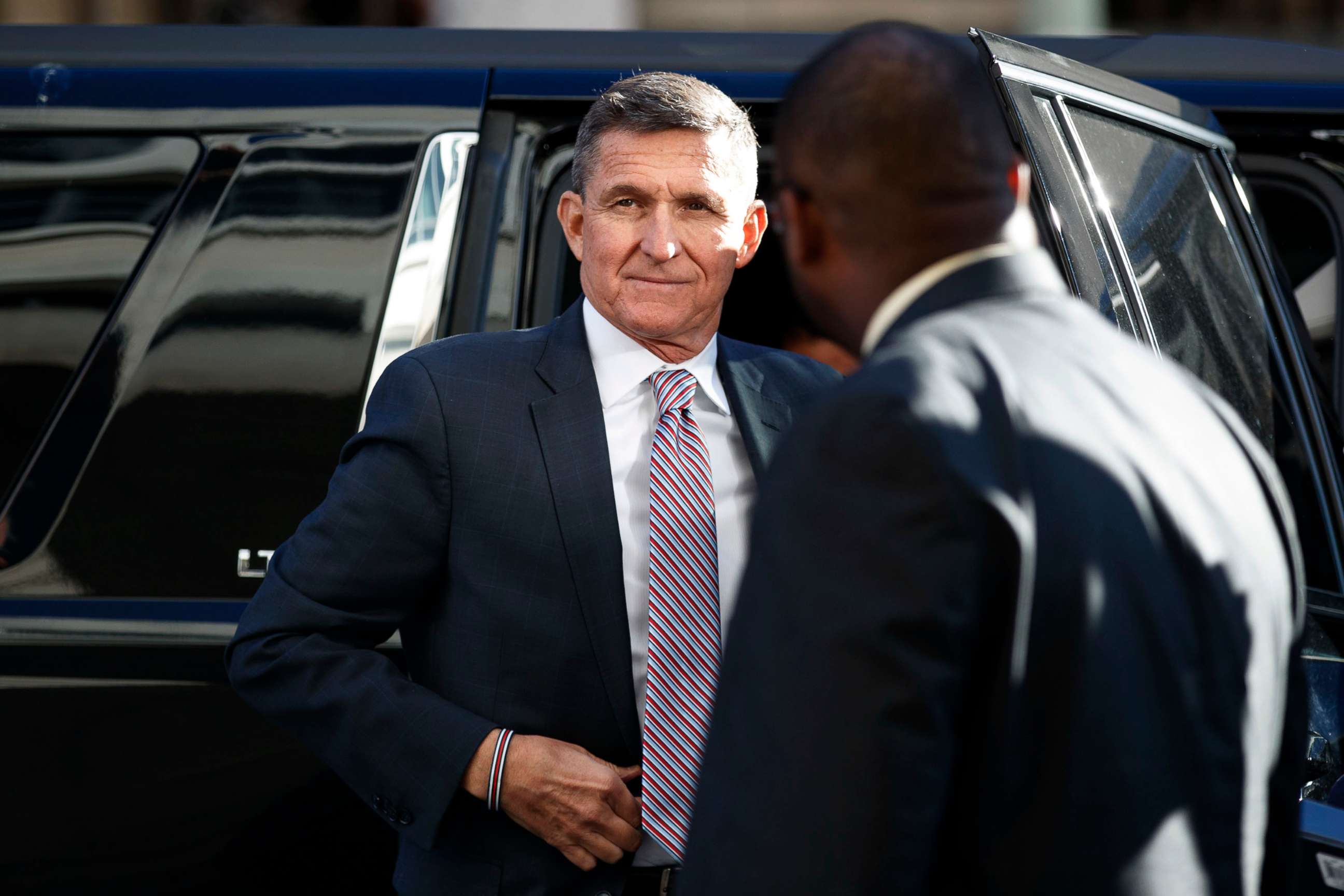
Here's what the report says:
Page 131 - “With regard to Flynn, the President sent private and public messages to Flynn encouraging him to stay strong and conveying that the President still cared about him before he began to cooperate with the government. When Flynn's attorneys withdrew him from a joint defense agreement with the President, signaling that Flynn was potentially cooperating with the government, the President's personal counsel initially reminded Flynn's counsel of the President's warm feelings towards Flynn and said "that still remains." But when Flynn's counsel reiterated that Flynn could no longer share information under a joint defense agreement, the President's personal counsel stated that the decision would be interpreted as reflecting Flynn's hostility towards the President. That sequence of events could have had the potential to affect Flynn's decision to cooperate, as well as the extent of that cooperation. Because of [attorney client] privilege issues, however, we could not determine whether the President was personally involved in or knew about the specific message his counsel delivered to Flynn's counsel. … Evidence concerning the President's intent related to Flynn as a potential witness is inconclusive. As previously noted, because of privilege issues we do not have evidence establishing whether the President knew about or was involved in his counsel's communications with Flynn's counsel stating that Flynn's decision to withdraw from the joint defense agreement and cooperate with the government would be viewed as reflecting "hostility" towards the President.”
Voicemail from President's personal counsel to Flynn’s counsel, framing the “situation” as a “national security issue.”
QUOTE: “Flynn's counsel told the President's personal counsel and counsel for the White House that Flynn could no longer have confidential communications with the White House or the President. Later that night, the President's personal counsel left a voicemail for Flynn's counsel that said: I understand your situation, but let me see if I can't state it in starker terms. . . . [T]t wouldn't surprise me if you've gone on to make a deal with ... the government. ... [I]f ... there's information that implicates the President, then we've got a national security issue, . . . so, you know, . . . we need some kind of heads up. Um, just for the sake of protecting all our interests if we can . ... [R]emember what we' ve always said about the ' President and his feelings toward Flynn and, that still remains .. ..
Here's the issue:
The President's Conduct Towards Former Campaign Chairman Manafort
Here's where you can find it in the report:
Vol. 2, pages 120-132
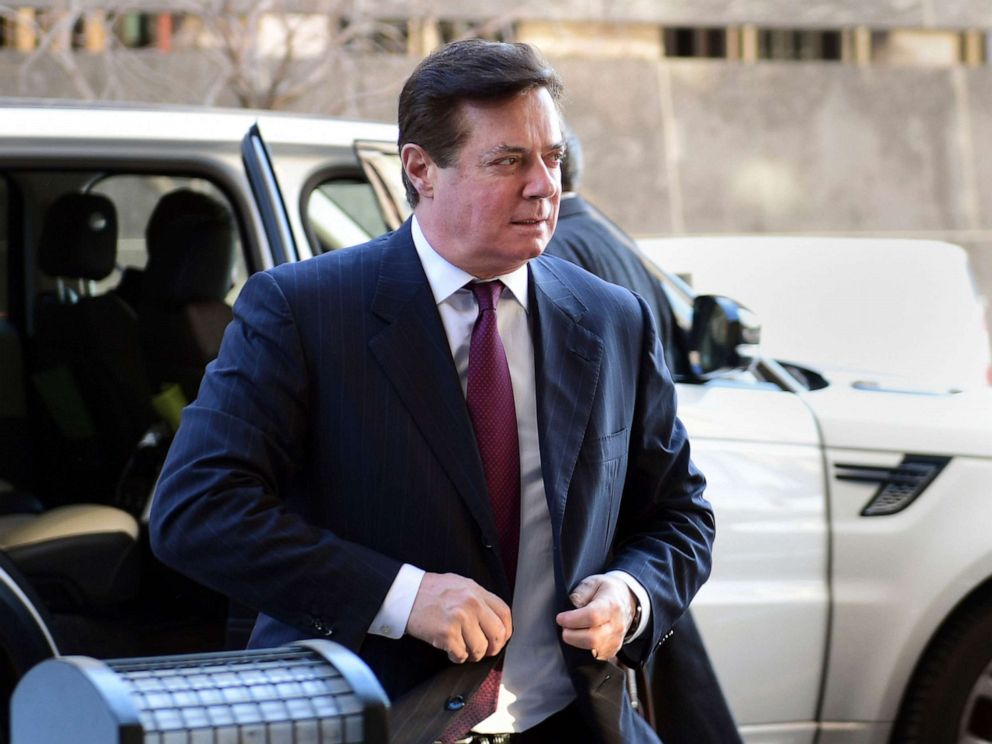
Here's the summary:
Following their felony indictments in October 2017, Manafort told Gates he was given assurances by Trump’s personal counsel. The report highlights public statements by Trump that could be interpreted as dangling a pardon for Manafort.
Here's what the report says:
“In January 2018, Manafort told Gates that he had talked to the President's personal counsel and they were "going to take care of us." Manafort told Gates it was stupid to plead, saying that he had been in touch with the President's personal counsel and repeating that they should "sit tight" and "we'll be taken care of." Gates asked Manafort outright if anyone mentioned pardons and Manafort said no one used that word.”
MUELLER’S ANALYSIS: “With respect to Manafort, there is evidence that the President's actions had the potential to influence Manafort's decision whether to cooperate with the government. The President and his personal counsel made repeated statements suggesting that a pardon was a possibility for Mana fort, while also making it clear that the President did not want Manafort to "flip" and cooperate with the government… Evidence concerning the President's conduct towards Manafort indicates that the President intended to encourage Manafort to not cooperate with the government.”
ABC News' John Santucci, Lucien Bruggeman and Pete Madden contributed to this report.
